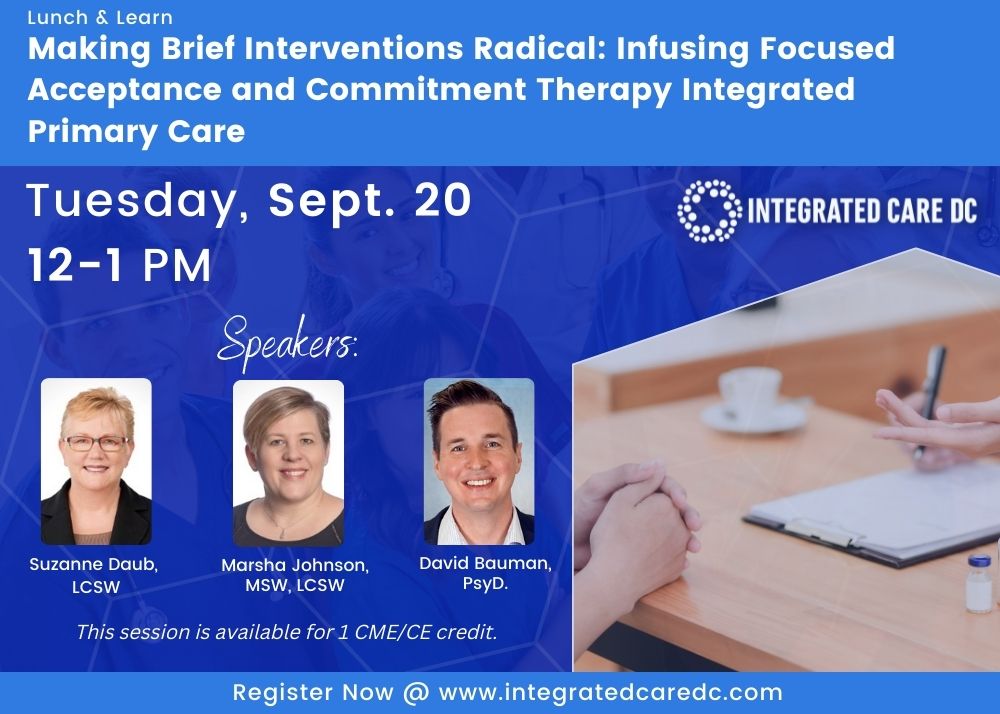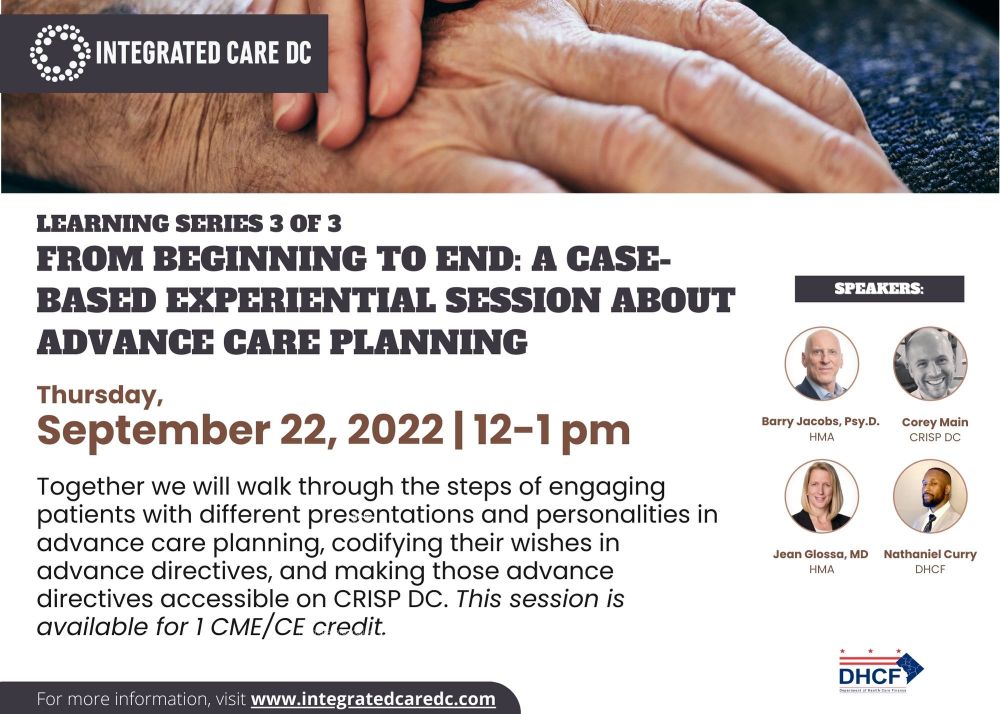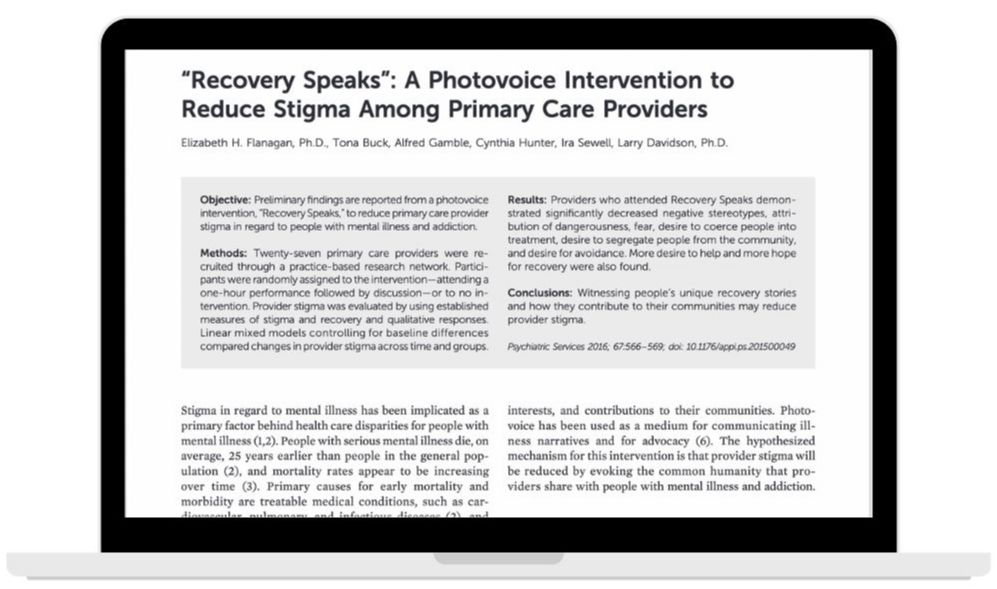Upcoming Lunch & Learn Sessions
Today: Tuesday, September 20 | 12:00 – 1:00 pm
Making Brief Interventions Radical: Infusing focused Acceptance and Commitment Therapy Integrated Primary Care
Speakers: Suzanne Daub, LCSW, Marsha Johnson, LCSW, & David Bauman, PsyD.
Soon: Thursday, September 22 | 12:00 – 1:00 pm
From Beginning to End: A Case-Based Experiential Session About Advance Care Planning – Session 3 of 3
Speakers: Barry Jacobs, Psy.D., Jean Glossa, MD, Corey Main, MBA CRISP
Register Now: Tuesday, October 18 | 12:00 – 1:00 pm
It’s a Matter of Context and Compassion: Utilizing Contextualism to Promote Engagement and Health Behavioral Change
Speaker: Suzanne Daub, LCSW & Marsha Johnson, LCSW, and David Bauman, PsyD.
Register Now: Monday, October 24 | 8:45 am – 5:15 pm
Mary’s Center Perinatal Mental Health Symposium

Each month, we are featuring one or more practices participating in the Integrated Care DC program that are making exceptional progress delivering whole-person care for DC residents. If you know a practice or someone deserving of this feature or want to feature yourself, use this link to tell us more.
Anchor Mental Health – Using Data to Manage Care
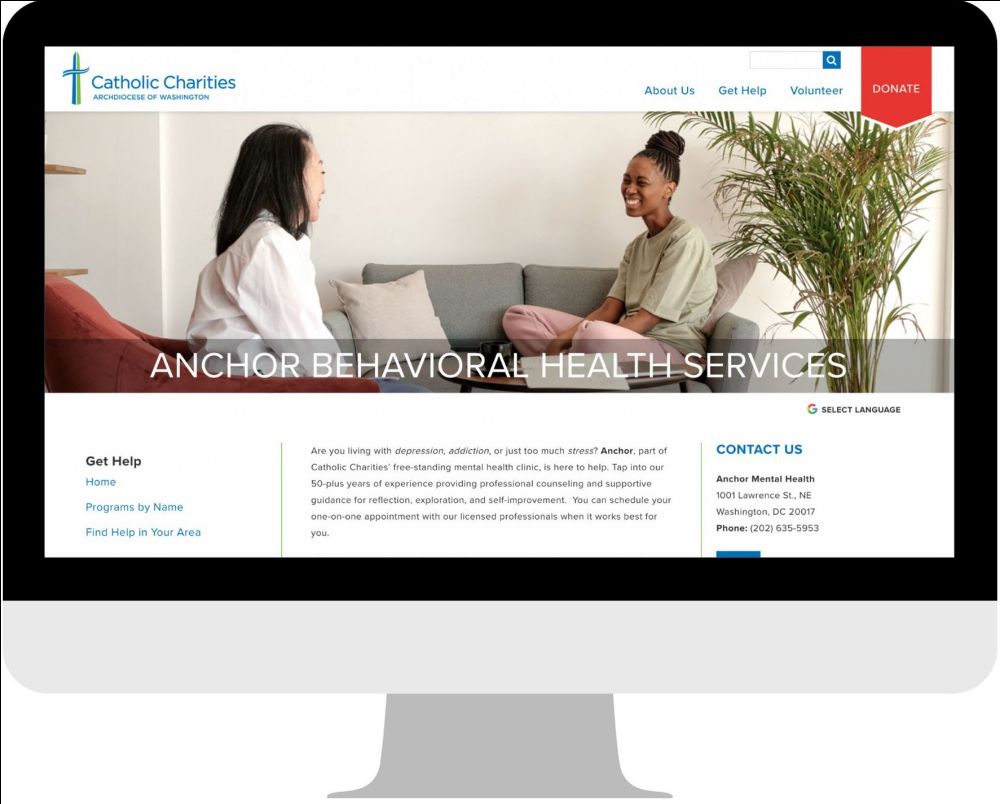
As part of the Integrated Care DC program, Anchor Mental Health, a division of Catholic Charities, worked with HMA coaches to better understand and address their quality data to improve clinical outcomes. This work included a focus on the use of CRISP tools as well as a review of the MCO behavioral health quality scorecards.
For example, Anchor combines CRISP Alerts, Discharges, and Transfer (ADT) feeds for consumers who have recently had an emergency department (ED) or inpatient visit. They align this data with the AmeriHealth scorecard outcomes. The Anchor quality team provides this patient-level data to its Assertive Community Treatment (ACT) team to focus its resources on the highest utilizers of BH-related ED visits. By drilling down on specific cases, they identified ways to improve transitions of care, outcomes, and patient satisfaction that may be applicable to their larger population of consumers.
ACT uses a team approach to follow-up after hospitalizations and partners with consumers to improve physical and behavioral health outcomes and reduce unnecessary ED utilization. The Anchor team was excited to report a significant reduction of emergency department (ED) visits for one consumer who had 13 visits in the fall of 2021. He now has regular follow-up visits with his primary care and specialist providers instead of emergency room encounters. He rarely visits the ED, thanks to the team providing whole-person care.
Through Integrated Care DC, our “team developed and implemented plans for improving the overall health of our consumers,” said Karen Ostlie, senior director of behavioral health transition at Anchor Mental Health. “We’re excited to continue our population health approach in improving clinical health outcomes.”
Click here to learn more about the mission of Anchor Mental Health.
September is National Recovery Month & Suicide Prevention Month

It’s National Suicide Prevention Month, a time when mental health advocates, prevention organizations, survivors, allies, and community members unite to promote suicide prevention awareness. The National Suicide Prevention Lifeline is now the 988 Suicide and Crisis Lifeline.
The change reflects the new three-digit dialing code to route callers to a national network of local crisis centers that provides free and confidential emotional support to people in suicidal crisis or emotional distress 24 hours a sevenay, 7 days a week. The Lifeline network and its partners are working to change the conversation from suicide to suicide prevention and actions that can promote healing, help, and give hope. Additionally, the DC Department of Behavioral Health will continue to operate the 24-hour Mental Health Hotline at 1-888-793-4357 for anyone feeling anxious, depressed, or wanting to talk about their mental health before it becomes a crisis.
September is also National Recovery Month. The annual recognition brings public awareness surrounding mental health and addiction recovery by promoting and supporting new evidence-based treatment and recovery practices, the nation’s strong and proud recovery community, and the dedication of service providers and communities who make a recovery in all its forms possible. The DC Department of Behavioral Health has a list of support services to help people who are ready to start the journey toward recovery.
Additional DC-based recovery and mental health services can be found here:
- District Addiction Consultation Service (DACS)
- Community Response Team (CRT)
- Emergency Psychiatric Services
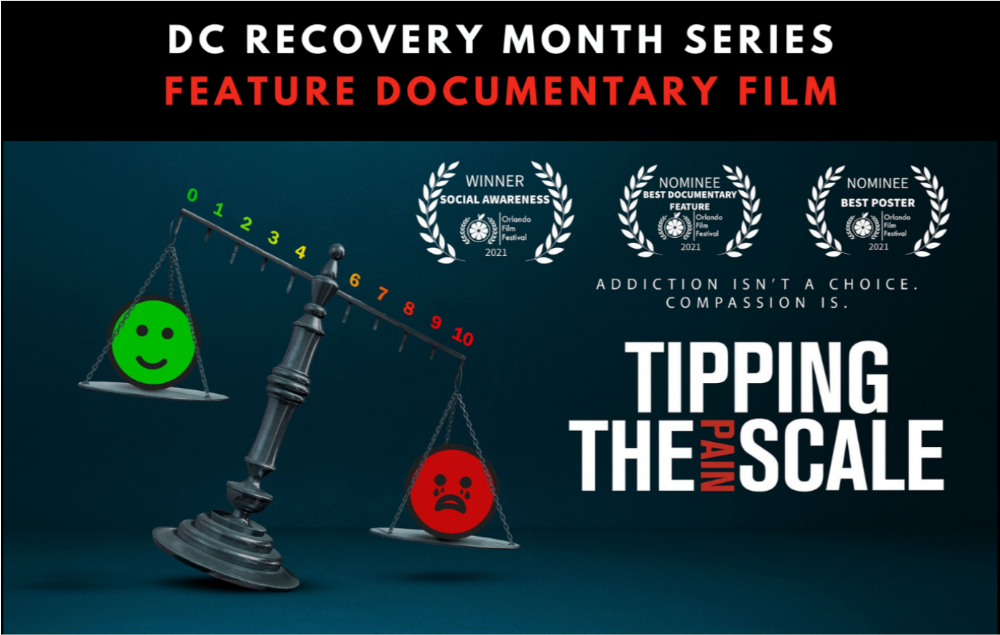
New Film Chronicles Addiction in Communities
It’s National Recovery Month. Free screenings of the documentary TIPPING THE PAIN SCALE are underway throughout the District. The film follows individuals grappling with the current systemic failures of how we have dealt with addiction in communities and their journey to develop and employ new, innovative, and often controversial solutions to the problem. It is a quasi-anthology, weaving characters through their own stories as they connect to the issues plaguing all communities and the country in an urgent fight to save lives.
To learn more or to find screening locations, click here.
Featured Learning Resource:
“Recovery Speaks”: A Photovoice Intervention to Reduce Stigma Among Primary Care Providers
Latest Learning Resources
- Substance Use Disorder Information: Office Hours
- Behavioral Health Consultation: Planning With The Patient
- Consent to Share Substance Use Disorder Information: A Provider’s Experience
- Consent Management: The Basics
- Behavioral Health Consultation: The Structure of the Visit
Dive into a Topic
Behavioral Health | Econsult/Telehealth | Screening and/or Assessment | HIE | Care Team Optimization | MAT | COVID-19 | Patient Engagement | Stigma Abatement | Substance/OUD
We publish on the 1st and 3rd Tuesdays of the month. If you have content for our monthly newsletter, or mid-month update, or have feedback or comments, we want to hear from you. Please send us an email at: communications@integratedcaredc.com.

